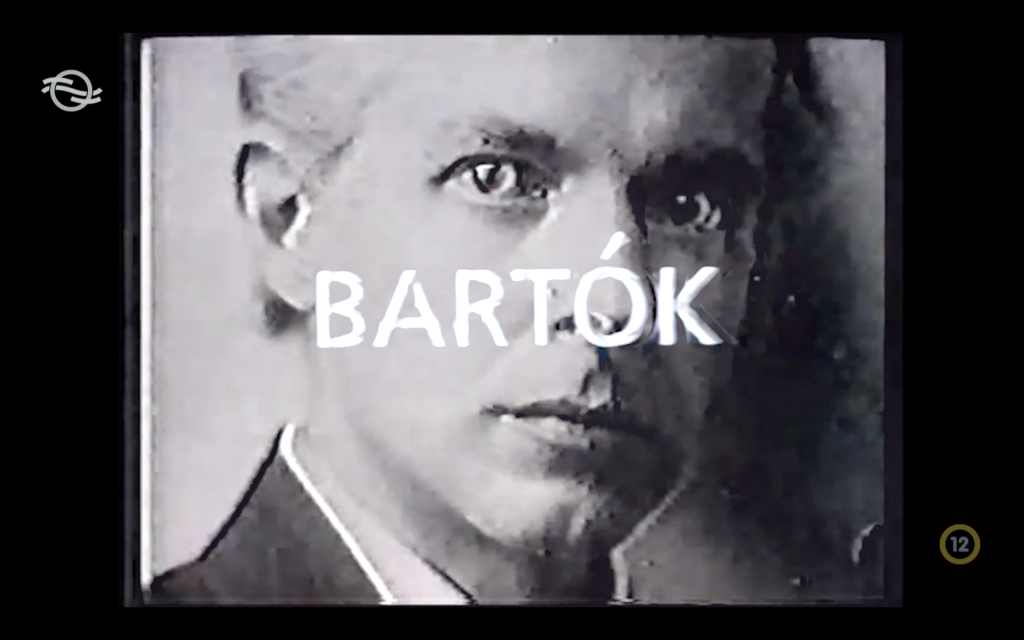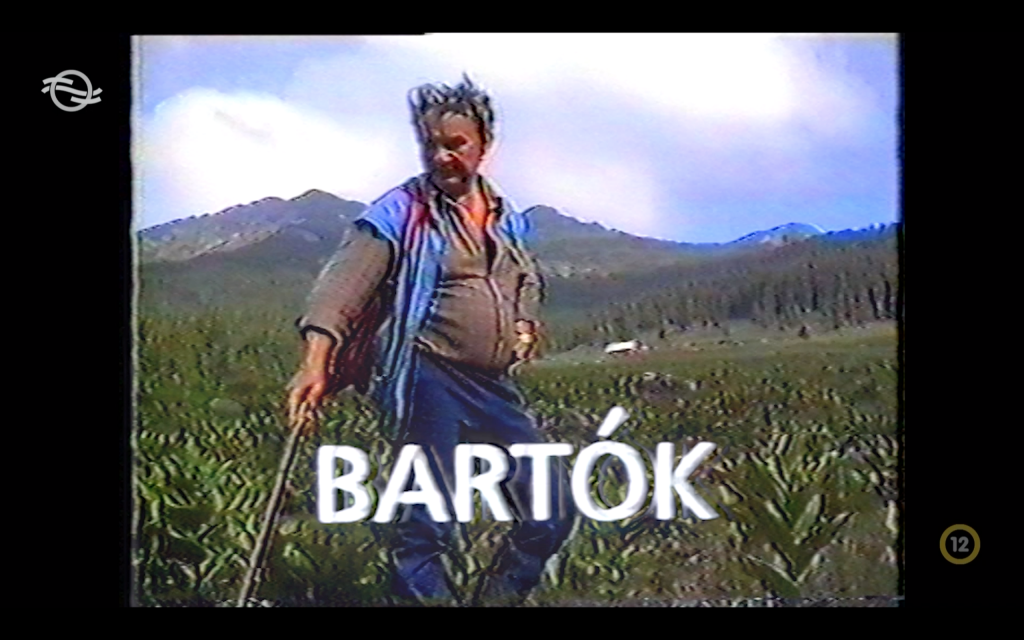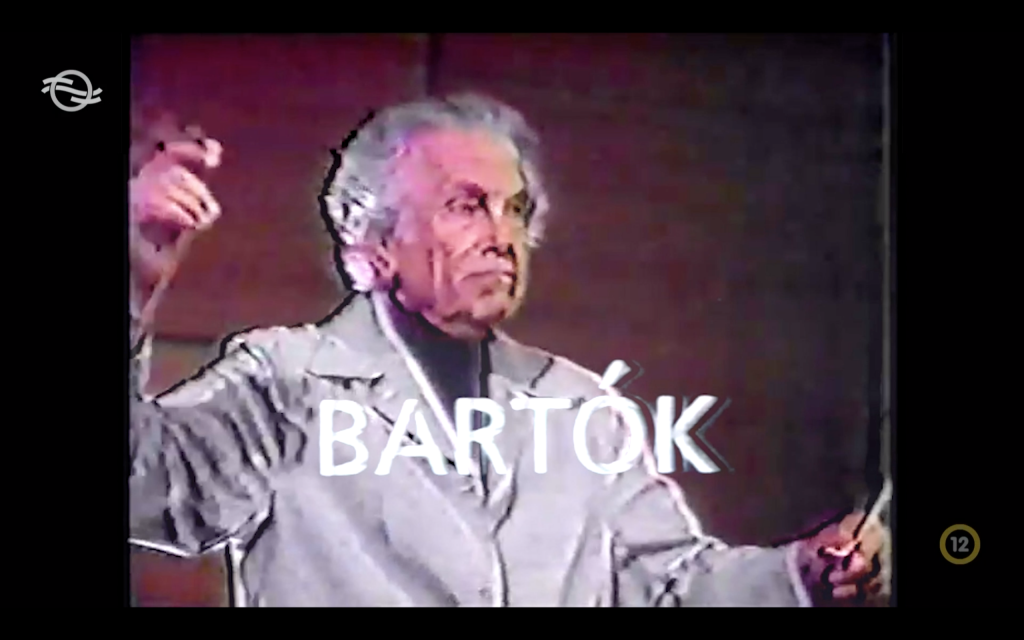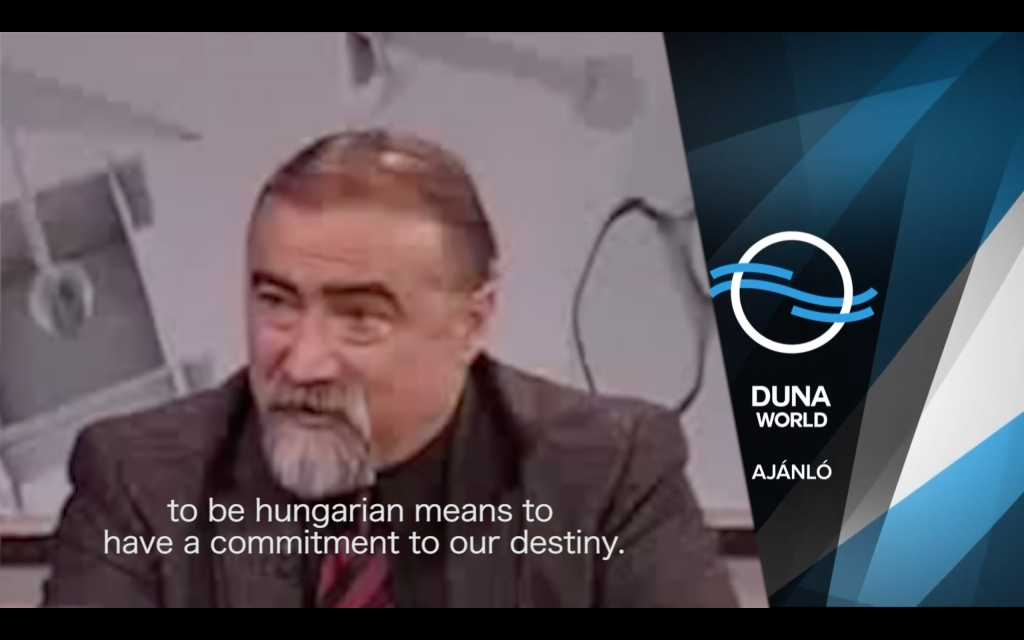Experimental film / video installation Full-HD-Video (QT H.264 1080p) 06.48 min., endless (loop), DEU/HUN 2019
The hungarian composer Béla Bartók is wandering through the forests and mountains of his homeland for one last time. It is a farewell walk. The political atmosphere has changed significantly for him.
In his documentary, David Scheffler uses mostly personal VHS-video recordings, made by his Hungarian relatives in the north carpathians, adding a few shots and pictures from TV-archive-material of Béla Bartók. The narrational, taken from documentations or audio recordings, features mostly english, but also hungarian voices, including Bartók himself. The statements are overlapping each other in a playful, almost poetic or lyrical manner. ‚Evening in transylvania‘ („este a székelyeknél“), a famous and well-known Bartók compo- sition, is accentuating the video musically. This documentary and obituary on Bartók is embed into the TV channel ‚Duna TV‘, constructing the fiction of beeing part of the program. Interrupting the tendencious television and government news, the documentary is contextualized into our current affairs.
Der ungarische Komponist Béla Bartók streift 1939 ein letztes Mal durch die Wälder und Berge seiner Heimat. Es ist eine Abschiedsrunde. Die politische Atmosphäre in Ungarn hat sich für ihn erheblich verändert. In der Dokumentation „egy vándor/ein Wanderer“ verwendet David Scheffler hauptsächlich persönliche VHS-Videoaufnahmen, die von seinen ungarischen Verwandten in den Nordkarpaten gemacht wurden, und fügt einige Aufnahmen und Bilder aus TV-Archivmaterial von Béla Bartók hinzu. Die Narration, die aus Dokumentationen oder Tonaufnahmen stammt, enthält hauptsächlich englische, aber auch ungarische Stimmen, darunter auch die Bartóks selbst. Die Aussagen überlagern sich spielerisch, poetisch, lyrisch. „Evening in Transylvania“ („este a székelyeknél“), eine berühmte und bekannte Bartók-Komposition, untermalt das Video musikalisch. Dieser dokumentarische Nachruf auf Bartók ist in das Fernsehsprogramm des ungarischen Senders „Duna TV“ eingebettet und behauptet somit, Teil des Programms zu sein. Der Dokumentarfilm wird von den tendenziösen Nachtichten der Regierung eingerahmt und erhält durch sie einen aktuellen Kontext.




